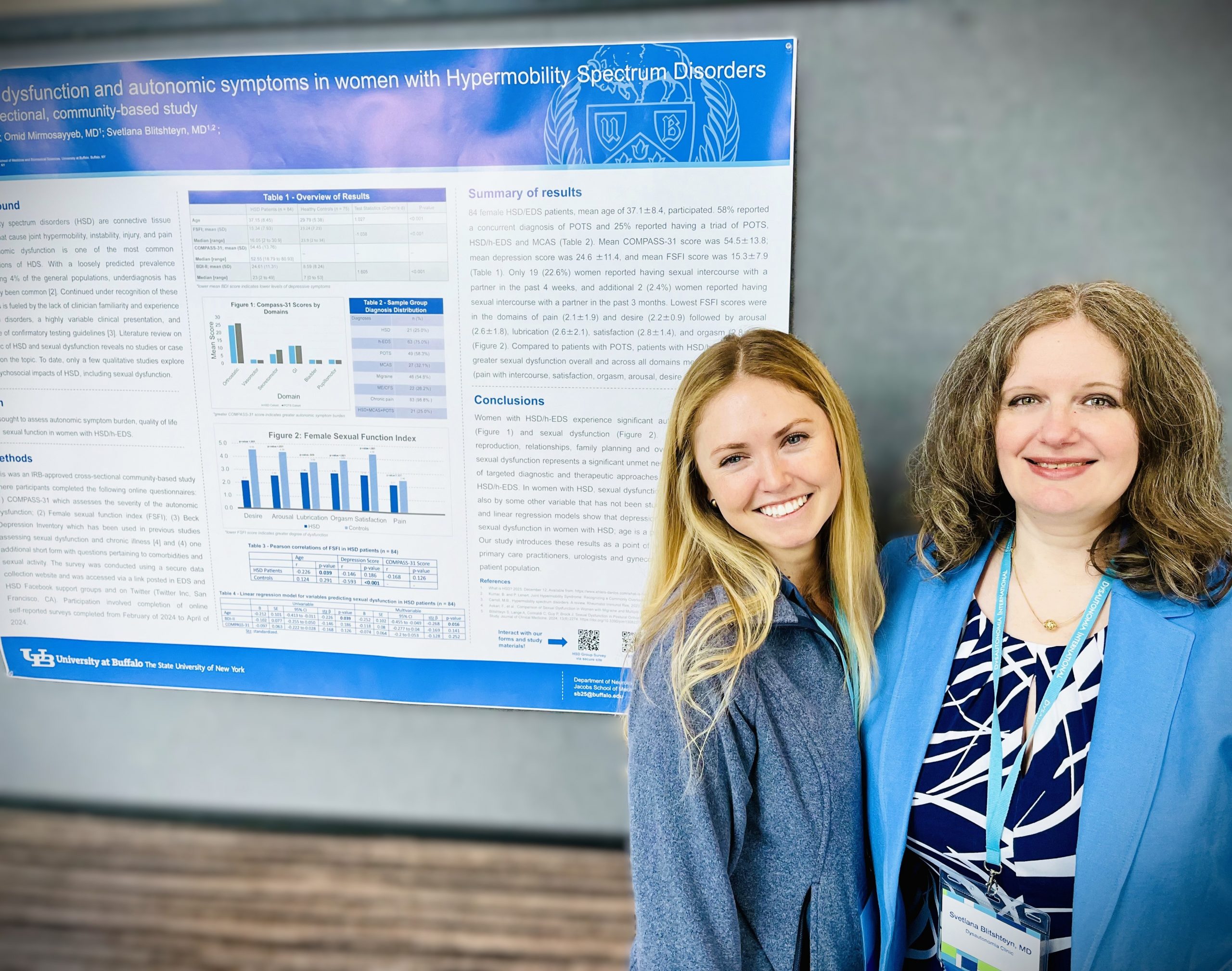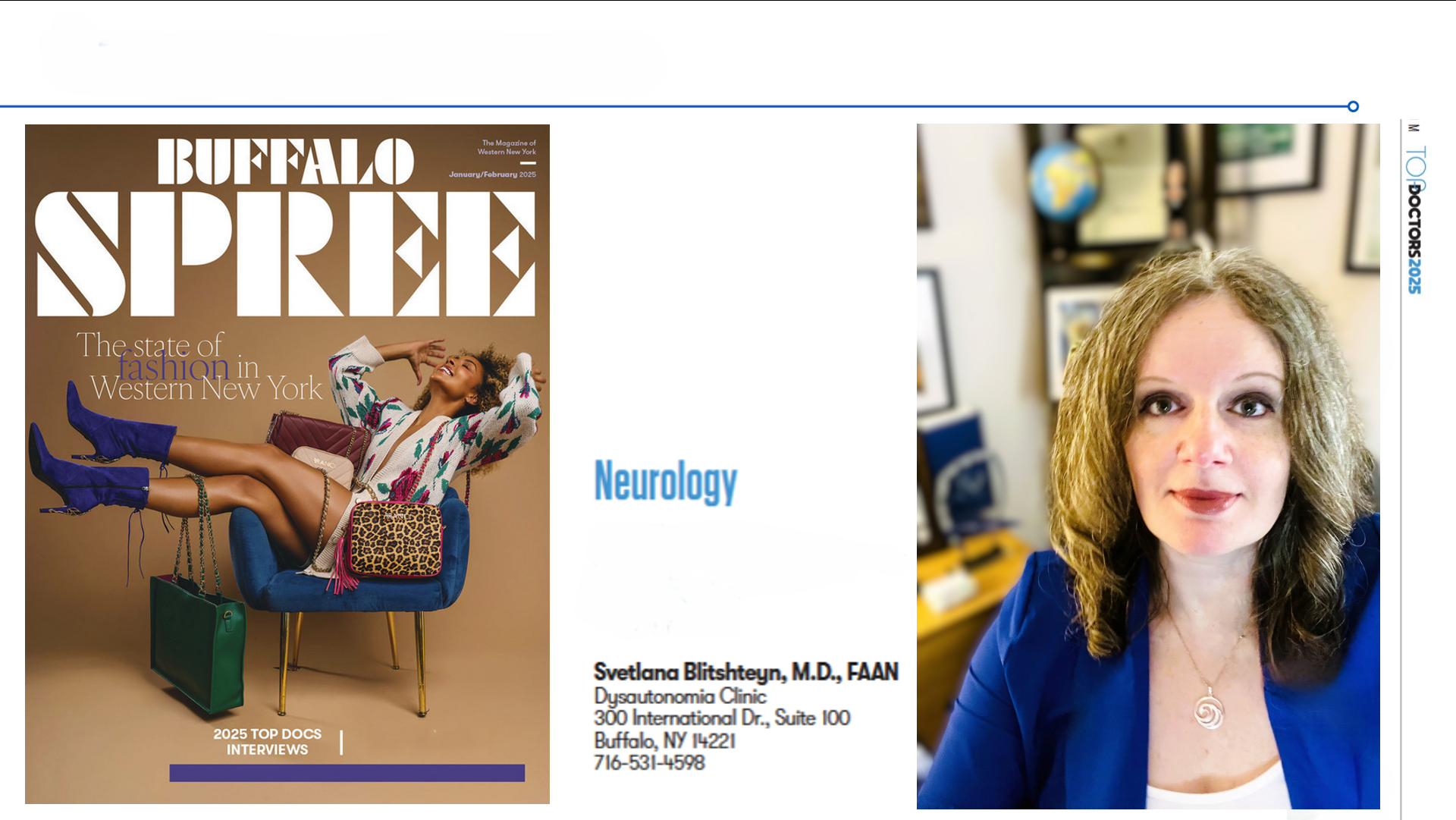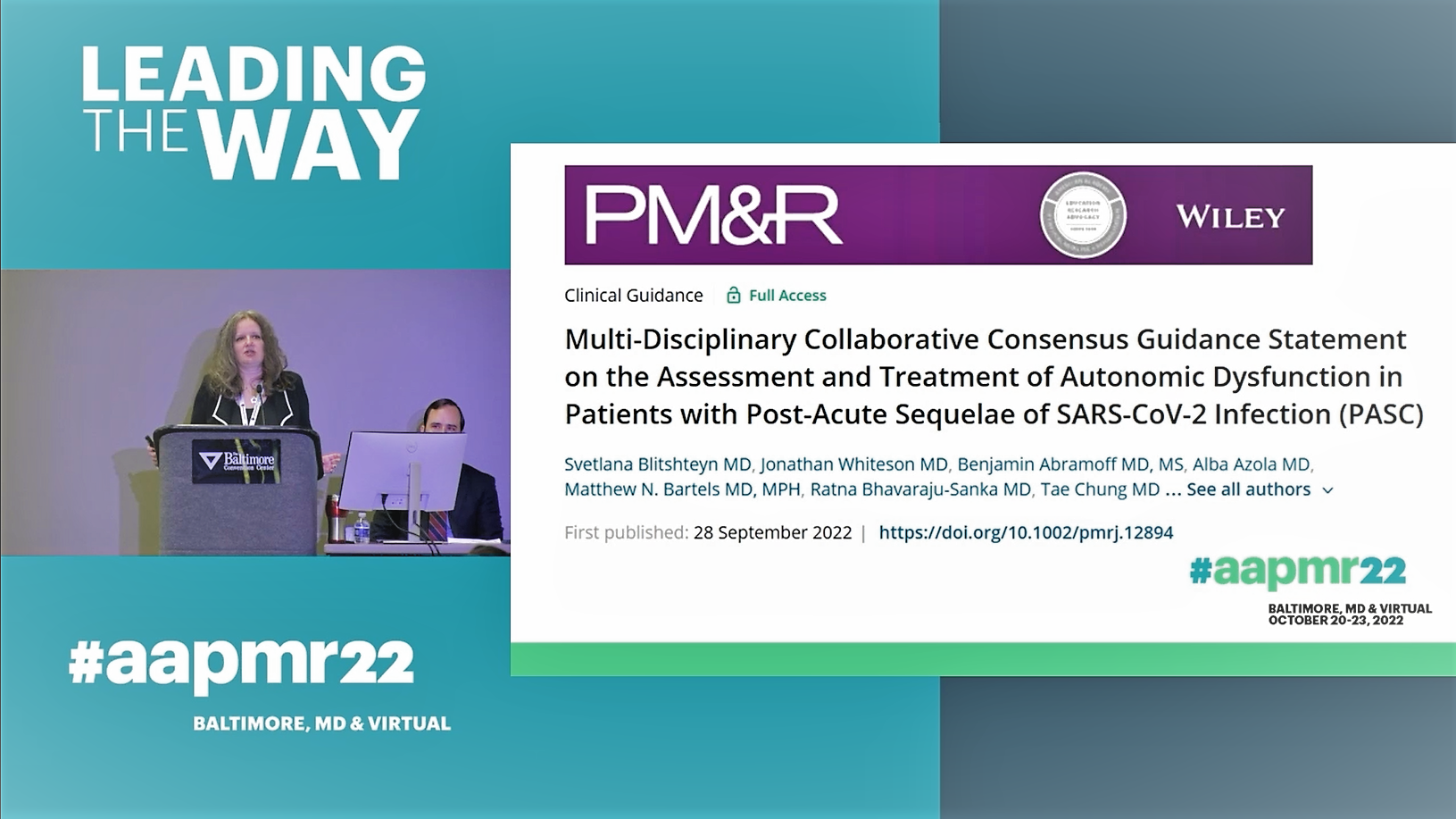In person, phone and video consults
At Dysautonomia Clinic, Dr. Blitshteyn provides care to patients with all types of dysautonomia, including POTS, neurocardiogenic syncope, autonomic and small fiber neuropathy, orthostatic hypotension, and multiple system atrophy. Since patients with dysautonomia often have co-morbid conditions, Dr. Blitshteyn is very experienced in assessing and managing related conditions, such as fibromyalgia, chronic fatigue syndrome, chronic migraine, insomnia, Ehlers-Danlos Syndrome, Mast Cell Activation Disorder and some autoimmune disorders. Through our consultations and individualized therapeutic approach, many patients have improved their quality of life and functional status (read patients reviews here).

How does it work?
Sometimes patients worry that by engaging in encounter with their doctor by phone or video, they will not be receiving the best patient care. They’re willing to travel 10 hours by car from another state or catch a plane to our clinic from another country in Europe or the Middle East. Thankfully, due to the modern technology, there are better, easier and more cost-effective ways to connect with your specialist. In the past few years, telemedicine has become a new wave of providing patient care worldwide, allowing for better access to renowned specialists, faster appointments and greater savings on the cost of travel and lodging. While some patients are suspicious that telemedicine can provide the same (or in some cases, better) type of medical care than a face-to-face visit, most patients are eager to take advantage of the new doctor-patient interaction model. In fact, the American Academy of Neurology and other medical societies have endorsed telemedicine as an effective way of health care delivery. The American Academy of Neurology approved telemedicine for evaluation of patients with acute stroke and noted that telemedicine improves the outcomes of stroke patients by allowing remote access to a stroke specialist. Telemedicine has also been effective in managing other neurologic conditions, such as epilepsy, chronic migraine, autonomic disorders, multiple sclerosis and Parkinson disease. Dr. Blitshteyn has been doing telemedicine for nearly a decade, and our patients had benefited from telemedicine before it became a new model of healthcare delivery.
“Do you try to find an underlining cause or do you just treat the symptoms?”
The short answer is both. It’s important to have a thorough testing done in patients with dysautonomia to rule out various POTS mimics and associated deficiencies and conditions. It’s also important to confirm the diagnosis of a specific autonomic disorder. Equally important is to obtain relief from bothersome symptoms, which is typically done through both non-pharmacologic and pharmacologic treatment options. These options will be discussed with you in details during your consultation and will be included in a comprehensive consult report that Dr. Blitshteyn provides for you after each consult.
“What about physical exam?”
Almost all of our patients have seen dozens of local physicians before they contact our clinic. That means that they have had at least a dozen of physical exams. Dr. Blitshteyn is very thorough in reviewing medical records, and your physical exam is also reviewed. Furthermore, Dr. Blitshteyn is able to do a limited neurologic exam remotely via video camera.

Remember that remote neurologic exam has been approved by the American Academy of Neurology for evaluation of stroke patients, which means that it is an adequate exam in the evaluation of dysautonomia patients. Finally, if Dr. Blitshteyn feels that you need additional neurologic assessment beyond the video evaluation, she will advise you to see your local neurologist for a full exam if necessary.


“My local doctors are not willing to follow Dr. Blitshteyn’s recommendations.”
Sometimes patients inform us after their phone or video consults that their local doctors are not interested in helping implement Dr. Blitshteyn’s therapeutic plan. This is unfortunate because we believe that your doctor should be your best advocate and should always act in your best interests. You only need one health care provider who is willing to work with us on your behalf. If your current doctor is unwilling to help you get better by following through Dr. Blitshteyn’s recommendations, the best option for you is to find another doctor who is. We are always eager to work with other doctors to help you get better while educating them about dysautonomia so that they can help other dysautonomia patients in their practice or refer them to us if they prefer to do so.
In summary, when you are sick and need a specialist who can help you get better, paying out-of-pocket for specialized care should not be viewed as an option, but rather as a necessary step on the path to recovery.
Paying out-of-pocket will save you months or years of substandard, fragmented and ineffective patient care, misdiagnosis and wrong treatment, as a result of which you will waste your time, money, energy, and physical and mental health.
Phone and video consults are an effective way to get the care that you need from the convenience of your own home. Telemedicine has been endorsed by the American Academy of Neurology and other medical societies as equally effective, and in some instances, more effective than a face-to-face visit. If you are interested in obtaining a consult with Dr. Blitshteyn, please e-mail to admin@amherstneurology.com.
